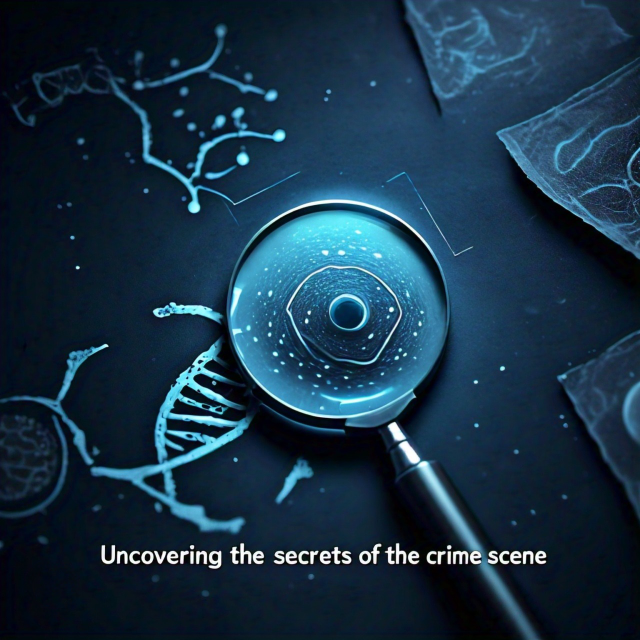Discover the exciting scope after BS Forensic Science in abroad! Explore the top 10 lucrative career opportunities and salary insights for forensic science graduates in international settings. Unlock your potential and advance your career in forensic science today.
Table of Contents
Scope After BS Forensic Science In Abroad: Unlocking Lucrative Career Opportunities
Pursuing a Bachelor of Science (BS) in Forensic Science abroad can open up numerous opportunities in various fields. Here’s an overview of the potential career paths and further education options available after completing Scope After BS Forensic Science In Abroad:

Career Opportunities
- Forensic Scientist/Technician:
- Roles: Analyzing crime scenes, collecting and examining evidence, writing reports, and testifying in court.
- Employers: Police departments, federal agencies, private laboratories, and forensic science departments.
- Average Salary: $55,000 – $85,000 per year (Top End: Up to $100,000 per year)
- Crime Scene Investigator (CSI):
- Roles: Collecting physical evidence from crime scenes, documenting the scene, and working with law enforcement.
- Employers: Law enforcement agencies, private investigation firms, and government agencies.
- Average Salary: $45,000 – $75,000 per year (Top End: Up to $90,000 per year)
- Forensic Pathologist:
- Roles: Conducting autopsies, determining the cause of death, and working with medical examiners.
- Employers: Hospitals, medical examiner’s offices, and government agencies.
- Average Salary: $150,000 – $250,000 per year (Top End: Over $300,000 per year)
- Forensic Chemist:
- Roles: Analyzing chemical evidence, such as drugs or toxins, and providing expert testimony.
- Employers: Forensic laboratories, pharmaceutical companies, and environmental agencies.
- Average Salary: $50,000 – $85,000 per year (Top End: Up to $100,000 per year)
- Digital Forensic Analyst:
- Roles: Investigating cybercrimes, recovering data from digital devices, and providing digital evidence.
- Employers: Law enforcement agencies, cybersecurity firms, and private corporations.
- Average Salary: $60,000 – $110,000 per year (Top End: Over $120,000 per year)
- Toxicologist:
- Roles: Analyzing bodily fluids and tissues to detect the presence of chemicals, drugs, or poisons.
- Employers: Hospitals, forensic labs, environmental agencies, and pharmaceutical companies.
- Average Salary: $60,000 – $95,000 per year (Top End: Up to $110,000 per year)
- Forensic Anthropologist:
- Roles: Analyzing human remains to determine identity, cause of death, and historical context.
- Employers: Universities, museums, and government agencies.
- Average Salary: $55,000 – $80,000 per year (Top End: Up to $95,000 per year)
- Forensic Odontologist:
- Roles: Using dental records to identify human remains and analyze bite marks.
- Employers: Medical examiner’s offices, dental schools, and law enforcement agencies.
- Average Salary: $120,000 – $220,000 per year (Top End: Over $250,000 per year)
Further Education
- Master’s Degree:
- Specializations: Forensic Science, Criminalistics, Forensic Psychology, Forensic Toxicology, etc.
- Benefits: Advanced knowledge, higher earning potential, eligibility for more specialized roles.
- Doctoral Degree (Ph.D.):
- Specializations: Forensic Science, Forensic Chemistry, Forensic Biology, etc.
- Benefits: Research opportunities, academic positions, leadership roles in forensic science.
- Professional Certifications:
- Certifications: Certified Forensic Scientist (CFS), Certified Crime Scene Investigator (CCSI), etc.
- Benefits: Enhanced credibility, career advancement, professional recognition.
Skills and Qualifications
- Analytical Skills: Critical for examining evidence and drawing conclusions.
- Attention to Detail: Important for accurate evidence collection and analysis.
- Communication Skills: Necessary for report writing and courtroom testimony.
- Technical Skills: Proficiency in laboratory techniques and use of forensic tools.
- Ethical Understanding: Awareness of ethical considerations in forensic investigations.
Platforms and Organizations for Forensic Science Professionals
- American Academy of Forensic Sciences (AAFS)
- Website: AAFS
- Opportunities: Networking, certifications, job listings.
- Federal Bureau of Investigation (FBI)
- Website: FBI Jobs
- Opportunities: Forensic scientist, crime scene investigator, digital forensic analyst.
- United States Postal Inspection Service (USPIS)
- Website: USPIS Careers
- Opportunities: Forensic analyst, digital forensics, forensic chemist.
- National Forensic Science Technology Center (NFSTC)
- Website: NFSTC
- Opportunities: Training, certifications, employment resources.
- International Association for Identification (IAI)
- Website: IAI
- Opportunities: Certifications, job listings, professional development.
- Crime Scene Investigator Network (CSI Net)
- Website: CSI Net
- Opportunities: Job postings, training resources, community forums.
- Forensic Science Society (FSS)
- Website: FSS
- Opportunities: Conferences, workshops, career resources.
OUR LATEST POSTS Click Here:
Notice: Discover diverse job openings worldwide at Jobznest.com. Click “Apply” to go directly to the employer’s career page—no personal information collected. We’re your bridge to exciting careers without any recruitment involvement. Start your journey with Jobznest.
Countries with Strong Forensic Science Programs:
Here is the some more info about Scope After BS Forensic Science In Abroad:
- United States: Renowned universities and extensive career opportunities in various federal and state agencies.
- United Kingdom: Strong forensic science programs and collaborations with law enforcement agencies.
- Canada: High-quality education and growing demand for forensic science professionals.
- Australia: Comprehensive programs and opportunities in government and private sectors.
- Germany: Advanced research facilities and strong emphasis on scientific methodologies.


